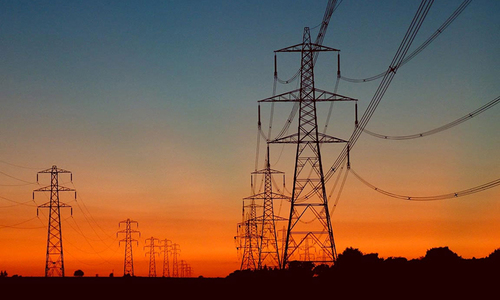ISLAMABAD: As the government conceded up to 1,500MW power cuts due to shortfall in addition to loadshedding, the power regulator on Friday approved an increase of up to Rs2.97 per unit in tariff for electricity consumers of ex-Wapda distribution companies (Discos) with effect from October 1.
According to an order along with schedule of tariff (SOT) released by the National Electric Power Regulatory Authority (Nepra), the tariff increase includes a fresh surcharge of Rs1.25 per unit for all consumers, except residential consumers, and a quarterly adjustment of Rs1.72 per unit for all consumers. The SOT showed no tariff increase for domestic consumers using up to 300 units. However, an increase of Rs1.72 per unit will apply to the consumers using above 300 units.
The tariff increase for all other categories — commercial, general, industrial, single-point supply, temporary supply, residential colonies of industrial units and agriculture — has been put at Rs2.97 per unit, except for agricultural tubewells for which increase will be Rs2.66 per unit.
However, quarterly tariff adjustment (QTA) of over Rs1.72 per unit would be given effect on October 1 to minimise the impact by replacing the existing QTA of Rs1.62 per unit that expires on September 30. Therefore, effectively the tariff increase for residential consumers will go up by about Rs8 paisa per unit, except for the consumers using up to 300 units per month. However, the tariff for all other consumer categories will effectively go up by Rs1.36 per unit.
Energy minister confirms around 1,500MW power cuts due to shortfall
The entire tariff adjustment would generate about Rs135 billion for the power companies in additional funding, besides additional revenues for the government, an official said.
Nepra said the federal government through a recent ordinance had “been empowered to impose surcharges for” certain purposes of fulfilling the financial obligations in respect of electric power services. It said that under the ordinance, the government was now empowered to impose surcharges.
“Regarding surcharges proposed by the federal government for various categories of consumers, it is to be clarified that Nepra has not levied any of such surcharges rather it is the federal government which has the statutory power to do the same,” the regulator’s order said, adding that any such surcharge was to be considered as a cost to be included in the tariff determined by Nepra.
As such, it said the federal government had intimated the regulator that it had levied surcharges and that Nepra was simply required to indicate surcharges imposed by the government against the corresponding columns of Nepra-determined schedule of tariff for the purpose of recovery only.
“Therefore, category-wise surcharges proposed by the federal government have accordingly been included in the instant decision,” the regulator said. The revised tariff would remain applicable with effect from October 1, 2021 and remain in place till September 30, 2022, it added.
Meanwhile, Energy Minister Hammad Azhar said loadshedding ranged between 600MW and 1,500MW on Friday, though it was slightly higher than the past couple of days. He said there were some ‘revenue-based’ power cuts as well in high-loss and theft areas which, if given full supply to meet demand, would jack up circular debt.
Speaking at a news conference, the minister said a couple of power plants had been brought on stream in two days and river flows were also improving. He said the LNG terminal had to be shut down for maintenance but a replacement vessel had been synchronised and its regasification had reached 40 per cent by now and would achieve 100pc capacity by Monday. Likewise, Tarbela power station, which is currently operating at about 25pc capacity, will also get back to 50pc by next week.
Mr Azhar said the LNG terminal that was planned to provide maximum LNG in six days would do so two days earlier. Responding to a question, he said RLNG was an unavoidable reality for Pakistan but all its agreements from import to regasification to pipeline supply and power generation were based on ‘take or pay’ instead of ‘take and pay’ mechanism and hence were expensive. “It will take time to change ‘take or pay’ to ‘take and pay’,” he said, adding that the present government would adopt ‘take and pay’ concept.
The minister said the transmission system could dispatch no more than 24,500MW at present and that was the maximum power supplied this year and was a record. He said industrial consumption had increased by 14pc and general consumers by 7pc last year.
Mr Azhar said the PTI government had inherited circular debt increasing by Rs450bn per annum which had been scaled down to Rs177bn last fiscal year. He said that 26,000MW would be added to the system over the next eight years. He said quarterly tariff adjustment had been delayed from March-April to September to minimise burden on power consumers.
Published in Dawn, July 3rd, 2021















































